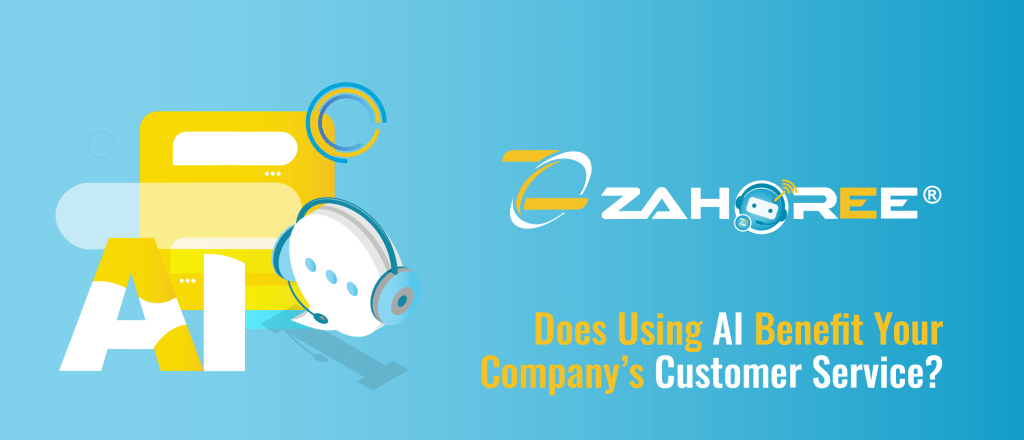Maximizing customer care AI benefits requires a thoughtful approach that strikes the right balance between artificial intelligence’s efficiency and human empathy to deliver standout customer experiences.
What Is AI in Customer Service?
Organizations across the business-to-customer (B2C) sector are putting customer experience at the center of their strategies. Competitive advantage now hinges on a company’s ability to collect, assess, and utilize personalized user data at scale while harnessing the benefits of AI in customer service to shape customer experience. In fact, 53% of B2C organizations report that customer experience sets them apart from their competition.
However, many companies struggle to secure deep customer engagement. Disconnected systems and fragmented customer data mean that business leaders often make big decisions with incomplete insights, while customer support teams face challenges in offering the in-depth, personalized assistance customers expect.
AI breaks down these barriers. Rather than replacing human staff, these systems unify data for decision-making, automate processes, and streamline workflows, empowering support teams to deliver great customer experiences.
Modern artificial intelligence technologies offer customer service and support that is efficient, fast, and personalized. With AI-powered solutions, businesses can automate tasks and streamline customer service workflows to reduce strain on human agents.
Common AI tools in customer service include:
- Chatbots that handle routine queries
- Voice bots for call support
- Sentiment analysis systems that gauge customer emotion in real time
- Predictive analytics tools that anticipate customer needs and recommend the next best actions
While AI is projected to impact 40% of global jobs, most experts agree it won’t replace human agents. Instead, this technology can automate mundane, repetitive tasks so your support team can focus on more complex, high-value interactions and maintain high levels of customer satisfaction.
Key Benefits of AI for Customer Service
As AI improves the experience for customers, it also offers significant business benefits.
24/7 Availability and Faster Response Times
Fast and convenient support is critical in winning customer loyalty. Ninety percent of customers expect a response within 10 minutes of making a customer support inquiry. If you fail to meet these expectations, you risk losing your customers: 86% of consumers report they would stop doing business with a company they were once loyal to after only two to three bad customer experiences.
To that end, the ability to deliver fast, 24/7 customer support is among the key benefits of AI in customer service. Through chatbots, virtual agents, and automated workflows, your business can handle routine queries at any time of day to reduce hold times and increase satisfaction.
Cost Reduction and Scalability
AI allows your support team to handle more with less. The technology automates routine tasks like:
- Answering FAQs
- Processing returns
- Routing tickets
- Verifying customer information
- Sending order or shipping updates
Your business can reduce operational costs without compromising service quality. Moreover, AI scalability during spikes in demand allows support operations to grow without a proportional increase in headcount.
Improved Efficiency and Productivity
One of the biggest benefits of AI in customer service is that it automates tedious, repetitive tasks to streamline workflows and reduce your support team’s workload.
With the saved time, your agents can attend to meaningful tasks that make their work more fulfilling and avoid burnout. AI can even guide a live agent with insight and suggested actions, boosting productivity.
Personalization at Scale
Because AI can gather and share customer insights with agents, your support team will be equipped with the information to personalize interactions based on each customer’s unique needs. It’s easy to make every customer feel cared for without extensive manual research.
Enhanced Data Insights and Predictive Analytics
Beyond handling basic interactions and simplifying agents’ work, customer care AI solutions learn. They continuously analyze interactions, feedback, historical data, and behavioral patterns to spot trends and uncover issues before they escalate. You can further use data to:
- Respond proactively
- Anticipate customer needs
- Improve service strategies
- Fine-tune products and messaging
Consistency and Accuracy
Unlike human responses, which can vary in tone and accuracy, AI draws information from structured knowledge bases to respond consistently to each customer. Every interaction stays aligned with your brand voice and approved information to build trust and reduce errors that could lead to miscommunication or churn.
Agent Empowerment
Rather than replacing agents, AI in customer service acts as an intelligent assistant. It can offer real-time suggestions, auto-fill forms, summarize customer histories, and recommend next steps. With less time spent on manual tasks, human agents can focus on building stronger customer relationships and resolving complex issues.
Best Practices for Implementing AI in Customer Service
To successfully implement AI in your customer service, you need a carefully thought-out strategy considering organizational, technological, and human aspects. Follow these best practices to deploy AI and maximize its benefits without disrupting your existing workflows or alienating your customers.
Start Small, Scale Strategically
Introduce AI solutions to your customer service gradually to minimize risk and avoid disrupting operations. Instead of implementing the technology immediately in all areas, start with pilot programs focused on low-risk use cases.
A test run allows you to test performance, gather feedback, and fine-tune your approach before scaling AI to more critical areas of customer service. It also presents the opportunity to assess the interaction between AI and your existing systems so you can make necessary adjustments.
Prioritize Data Quality and Governance
AI is only as good as the data it runs on. Establish clear data ownership to establish who is responsible for managing certain data sets. Set up regular checks to catch errors like duplicates, missing fields, or outdated information.
You should also standardize data collection across departments and understand where it’s stored and how long you keep it to stay compliant and avoid legal troubles with relevant authorities.
Embed Privacy and Security by Design
Do not wait for a breach or regulatory fine to secure your systems. Instead, approach privacy and security as key strategies to build trust with customers:
- Encrypt data in storage and transit to protect sensitive information from unauthorized access or interception.
- Limit access to data using role-based control so that only the right people see sensitive information.
- Reduce exposure of personal data with anonymous or masked alternatives.
Embed privacy in your AI solutions from the start by running a privacy impact assessment early, not after launch. Such a proactive approach helps you remain compliant while showing your customers that their data is safe with you.
Invest in Training for Both AI Systems and Staff
Train AI models using a diverse, representative dataset to reduce biases.
More importantly, prepare your employees for using AI. Changing processes can create uncertainties and resistance, especially if your workforce perceives the technology as a threat to their jobs. To counter such concerns, offer comprehensive training programs early on to familiarize your team with the benefits and functionality of AI. Emphasize that AI is not a replacement but a complement to human work.
Monitor Performance and Continuously Refine
Introducing AI to your customer service isn’t a one-off project. It’s an ongoing process that requires regular monitoring and adjustments.
Define meaningful key performance indicators (KPIs) to assess AI effectiveness. Beyond focusing on usage stats, consider KPIs such as:
- Customer satisfaction scores (CSAT)
- Resolution times
- Deflection rates
Track these KPIs using A/B testing and real-time dashboards. Collect feedback from agents and customers to spot patterns that AI can’t self-diagnose. Regular monitoring will help refine your AI models to address issues such as model drift or other unexpected behaviors.
Align AI Initiatives With Business Objectives
AI benefits to customers won’t come from novelty but from strategically aligning your AI initiatives with business objectives and customer needs. Establish your specific goal for AI implementation, such as improving customer satisfaction or reducing operational costs. Then tie each solution to a measurable business goal.
Evaluate and Mitigate Vendor Risks
If you’re using third-party tools to deploy AI solutions, scrutinize their data practices with the same rigor you apply internally. Assess:
- How the vendor trains their models
- How they’ll store and use your customer data
- Their breach notification process
- Whether they comply with relevant privacy regulations
Insist on a service-level agreement for uptime and support response.
The Future of AI in Customer Service
The rapid development of artificial intelligence suggests that AI will play an even more integral role in customer service in the future. Emotional AI is among the most exciting trends, and it allows models to recognize and respond to human emotions. Such advancements in generative AI make it possible for chatbots to detect whether a customer is angry or frustrated and adjust responses to customer moods.
A further trend is predictive analytics, which allows organizations to anticipate customer needs before they arise. Support teams can use the uncovered insights to offer proactive support, such as resolving issues before a customer even reaches out. Some companies are exploring digital twins — virtual models of customer behavior — to test and improve service experiences in real time.
Regardless of the impressive advancements in AI, the human factor in customer service remains indispensable. While technology can automate and enhance many tasks, some aspects of customer service require human empathy, intuition, and creativity. As long as customers still value speaking with humans, the future lies in a hybrid human-AI collaboration.
Your Customers Deserve a Top-Notch Experience — And AI Can Help
AI is a lifeline for B2C organizations operating in a high-stakes, high-pressure environment. This technology can deliver 24/7 availability for uninterrupted customer support, personalized assistance to meet customer preferences, and insights to help support teams anticipate customer needs.
As customer experience becomes more important than ever, AI in customer service is a strategic asset to carve a competitive edge. With AI, you can blend speed, precision, and human empathy to deliver highly personalized support. Explore Zahoree’s AI ZWingman today and see how artificial intelligence can power a better experience for your customers and your team.



